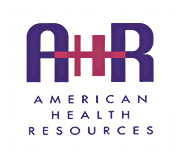
Health Insurance Options For Medicare-Eligible Employees
Q1. What are employers required to offer their Medicare-eligible active employees?
A1. Employers are required to offer active employees age 65 or over the same group health plan coverage offered to younger workers. Workers with Medicare-eligible spouses must be offered the same spousal benefits as employees with spouses that are not Medicare-eligible.
Q2. Are employees who are Medicare eligible required to elect their group health coverage or Medicare?
A2. No. Employees can elect, at their discretion, Medicare or the group health plan. This is true for groups of any size. However, their employer cannot induce them or provide incentives to select Medicare as their primary coverage.
Q3. Can an employer pay for Medicare premiums as an alternative to paying the employer portion of the group health premiums?
A3. For groups with 20 or more full time equivalent employees, no. For groups with fewer than 20, yes. The relevant law is as follows:
Revenue Ruling 61-146 holds that “if an employer reimburses an employee’s substantiated premiums for non-employer sponsored hospital and medical insurance, the payments are excluded from the employee’s gross income under Code § 106. This exclusion also applies if the employer pays the premiums directly to the insurance company”. This is referred to as an Employer Payment Plan (EPP) in IRS Notice 13-54.
Revenue Ruling 67-360 holds that “amounts paid by the employer as premiums for supplementary medical insurance (Medicare) for his employees are excludable from the gross income of the employees under section 106 of the Code.” Medicare premiums are specifically included in this ruling. This, and Revenue Ruling 61-146, was expanded and further clarified by:
Notice 2015-17, which stipulates that a group may reimburse Medicare premiums if: The employer offers a group health plan that meets ACA minimum value requirements The employee is actually enrolled in Medicare parts A and B The payment is available only to the employees who are enrolled in Medicare part A and B or part D The payment is limited to reimbursement of Medicare B or D premiums and excepted benefits (medical out of pocket expenses, Medigap premiums).
The intent of this ruling is to give Medicare-eligible employees the right to choose whichever plan is best for them, given the cost of Medicare or the group health plan.
Q4. How can a group implement this?
A4. By adopting the following group health plan employer contribution rules:
- Set the employer portion of health insurance premiums for all employees at specific dollar amount for each tier of coverage, instead of a percentage of premium. For example, set the employer contribution at $250 for single, $500 for employee+children, $750 for employee+spouse, $1,000 for family. Age-banding is allowed. The employee portion should be greater than Medicare premiums.
- Allow Medicare eligible employees to choose between that contribution, or a HRA equal to the same amount. They cannot, however, choose cash in lieu of those HRA payments, and must be enrolled in Medicare Parts A and B to participate.
As long as all similarly situated employees are afforded the same level of employer contribution to their premiums, regardless of Medicare eligibility, the Plan is not discriminatory. And while the HRA may produce a lower total out of pocket cost for premiums and medical expenses for a given employee than choosing the group plan, that does not constitute an inducement or incentive and adheres to the intent of the law.
Q5. Will this save money?
A5. Yes. Since Medicare premiums and Medigap or Part D policies are significantly less expensive than group health premiums for those over 65, this approach will typically save money for both the employer and the employee.
Q6. What about Medicare as secondary payer rules?
A6. Medicare as secondary payer rules only apply if an employee is in a group with 20 or more employees. But regardless of group size, if an employee waives group coverage, Medicare is primary.
Q7. Can a group administer this themselves?
A7. Yes, but it is unwise to do so. HRA rules are complex, the penalties for violations are severe, and the information within a plan is subject to HIPAA. Having a HRA administered by a competent TPA is inexpensive and eliminates considerable risk.



